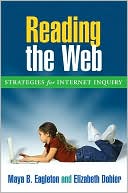Category Books
- Fiction Books & Literature
- Graphic Novels
- Horror
- Mystery & Crime
- Poetry
- Romance Books
- Science Fiction & Fantasy
- Thrillers
- Westerns
- Ages 0-2
- Ages 3-5
- Ages 6-8
- Ages 9-12
- Teens
- Children's Books
- African Americans
- Antiques & Collectibles
- Art, Architecture & Photography
- Bibles & Bible Studies
- Biography
- Business Books
- Christianity
- Computer Books & Technology Books
- Cookbooks, Food & Wine
- Crafts & Hobbies Books
- Education & Teaching
- Engineering
- Entertainment
- Foreign Languages
- Game Books
- Gay & Lesbian
- Health Books, Diet & Fitness Books
- History
- Home & Garden
- Humor Books
- Judaism & Judaica
- Law
- Medical Books
- New Age & Spirituality
- Nonfiction
- Parenting & Family
- Pets
- Philosophy
- Political Books & Current Events Books
- Psychology & Psychotherapy
- Reference
- Religion Books
- Science & Nature
- Self Improvement
- Sex & Relationships
- Social Sciences
- Sports & Adventure
- Study Guides & Test Prep
- Travel
- True Crime
- Weddings
- Women's Studies
Reading the Web: Strategies for Internet Inquiry » (New Edition)

Authors: Maya B. Eagleton, Elizabeth Dobler, Donald J. Leu
ISBN-13: 9781593852177, ISBN-10: 1593852177
Format: Paperback
Publisher: Guilford Publications, Inc.
Date Published: January 2007
Edition: New Edition
Author Biography: Maya B. Eagleton
Maya B. Eagleton, PhD, is an Adjunct Assistant Professor in Language, Reading and Culture at The University of Arizona. She teaches courses in traditional literacies, digital literacies, and qualitative research methods. She also consults for CAST, Inc. (Center for Applied Special Technology), where she researches and designs literacy software prototypes for students with learning disabilities. Dr. Eagleton has extensive K-12 classroom experience as a Title I coordinator and a Reading Recovery teacher.
Elizabeth Dobler, PhD, was a classroom teacher for 13 years before assuming her current position as an Assistant Professor of Reading and Language Arts at Emporia State University. In this capacity, she teaches preservice and experienced teachers in both face-to-face and online formats. Dr. Dobler has been a primary researcher for studies involving Internet reading, in which she has worked closely with classroom teachers, library media specialists, and instructional technology specialists.
Book Synopsis
Packed with ideas and instructional activities that cut across all content areas, this engaging book provides a comprehensive framework for promoting vital Web literacy skills in grades 3-8. Teacher-friendly special features include helpful graphics, sidebars, practical tips, and nearly 100 reproducibles. Using a research-based, classroom-tested model of Internet inquiry, the authors explain the "whats," "whys," and "how-tos" of helping diverse learners:
*Locate useful information sources on the Web
*Navigate the contents of a website
*Critically evaluate what they read online
*Synthesize the results of an Internet inquiry
*Express new knowledge in their own words
Note: The authors' website (www.ReadingTheWeb.net) features additional helpful materials: Web links keyed to each chapter, copies of the reproducibles in the book, a complete reference list, and more.
Children's Literature
This timely text should find an audience with teachers looking for a structure through which to frame their students work on research and the Internet. The authors begin with the necessary background on the use of the Internet in American schools, households, and workplaces, and employ this information to anchor the focus of the book--The QUEST Model of Internet Inquiry--to student learning and related literacy issues. The rest of the book focuses on the QUEST model; this large section begins with a consideration of preparation. After dealing with questions concerning how prepared the school and the teacher is in terms of technology and background knowledge, the authors break down the word QUEST into its signature parts. Q stands for questioning, and there is solid discussion of the need for students and teachers to understand those techniques. U is for understanding resources, and this becomes a very informative section on how to know which Internet sources are valid and reliable. E is for evaluation, and the section focuses on its importance and how we teach students to evaluate. Synthesizing is the highlight of the next section, and, as the authors note, the way in which teachers model approaches to this skill are difficult yet necessary. Finally, T focuses on how to transform information into a project or paper in a manner that shows maximum student learning. This book will be a solid resource for classroom teachers (especially with the large number of handout models offered in each chapter) and the vast number of anecdotes of success interactions with this approach certainly underscores that. Reviewer: Jean Boreen, Ph.D.
Table of Contents
I. Understanding Print and Web Literacies
1. Learning How to Learn
2. Becoming Literate
II. The QUEST Model of Internet Inquiry
3. Preparing for the QUEST
4. Questioning
5. Understanding Resources
6. Evaluating
7. Synthesizing
8. Transforming
9. Reflecting on the QUEST
Subjects
 WWW & Internet
WWW & Internet  Education Online
Education OnlineEducation & Teaching
 Literacy
Literacy  Computers and literacy
Computers and literacyEducation & Teaching
 Teaching & Teacher Training
Teaching & Teacher Training  Computers & Technology in Education
Computers & Technology in EducationNonfiction
 All Nonfiction
All Nonfiction  Education - General & Miscellaneous
Education - General & Miscellaneous
